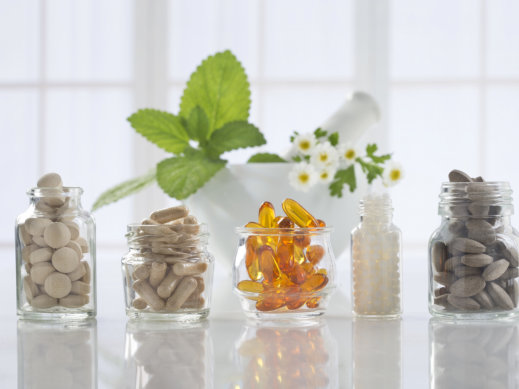75% of the whole American population aged 18 years and older take dietary supplements. Supplementing your diet with these products can be beneficial to your health. But there are certain situations wherein taking them can do more harm than good. As a leading provider of pharmacy services in Lodi, New Jersey, here are 5 things you need to know about these health add-ons.
- Dietary supplements and herbal supplements are different.
- Dietary supplements are tablets, capsules, powders or liquid taken orally and are manufactured to supplement one’s diet. They could contain one or more ingredients purported to have health benefits including vitamins, minerals, extracts or tissues from organs or glands, enzymes, amino acids and botanicals or herbs.
- Herbal supplements, on one hand, is a kind of dietary supplement made mainly from either plants, fungi, algae or a combination of these three and marketed as all-natural.
- Rules regulating the safety and efficacy of dietary supplements are laxer compared to the regulations regarding prescription medications and over-the-counter drugs.
- The US Food and Drug Administration (FDA) can evaluate supplements but as food, not medicine. Making sure the products are safe for human consumption falls into the hands of their manufacturers.
- Nevertheless, if bad reports surface about certain supplements, the government can take action and ban them from being sold.
- In this light, consumers must take precaution when buying supplements. Get only those that are manufactured by reputable companies and sold by providers you can trust like EssexCare Pharmacy.
- The “all natural” label doesn’t equate to safe consumption.
- Natural herbal supplements can still pose as health risks as some herbs are known to:
- Trigger allergies
- Bring about dangerous side effects
- Interfere with how prescriptions are supposed to work
- Cause complications during and after surgery
- Yes, there’s a thing as too much.
- If you follow a balanced and healthy diet, there’s a great possibility you don’t need these health add-ons to supplement the nutrients you’re getting from your food. Getting too much of certain vitamins and minerals can also be detrimental to your health.
- Of course, there are instances when they’re needed. One good example is folic acid for mothers-to-be and those wanting to get pregnant.
- Supplements can interfere with how medications work and might complicate surgical procedures.
- So, if you have scheduled surgery or are taking prescriptions due to certain medical conditions, it’s best to ask your doctor’s or pharmacist’s advice regarding what supplements you can safely use.
We don’t just fill prescriptions or not just a trusted source of medical supplies in New Jersey. As a customer, you can make use of our patient counseling and pharmacist consultation services to gain a better understanding of dietary supplements and the best ones to take for your health needs.







Leave a Reply